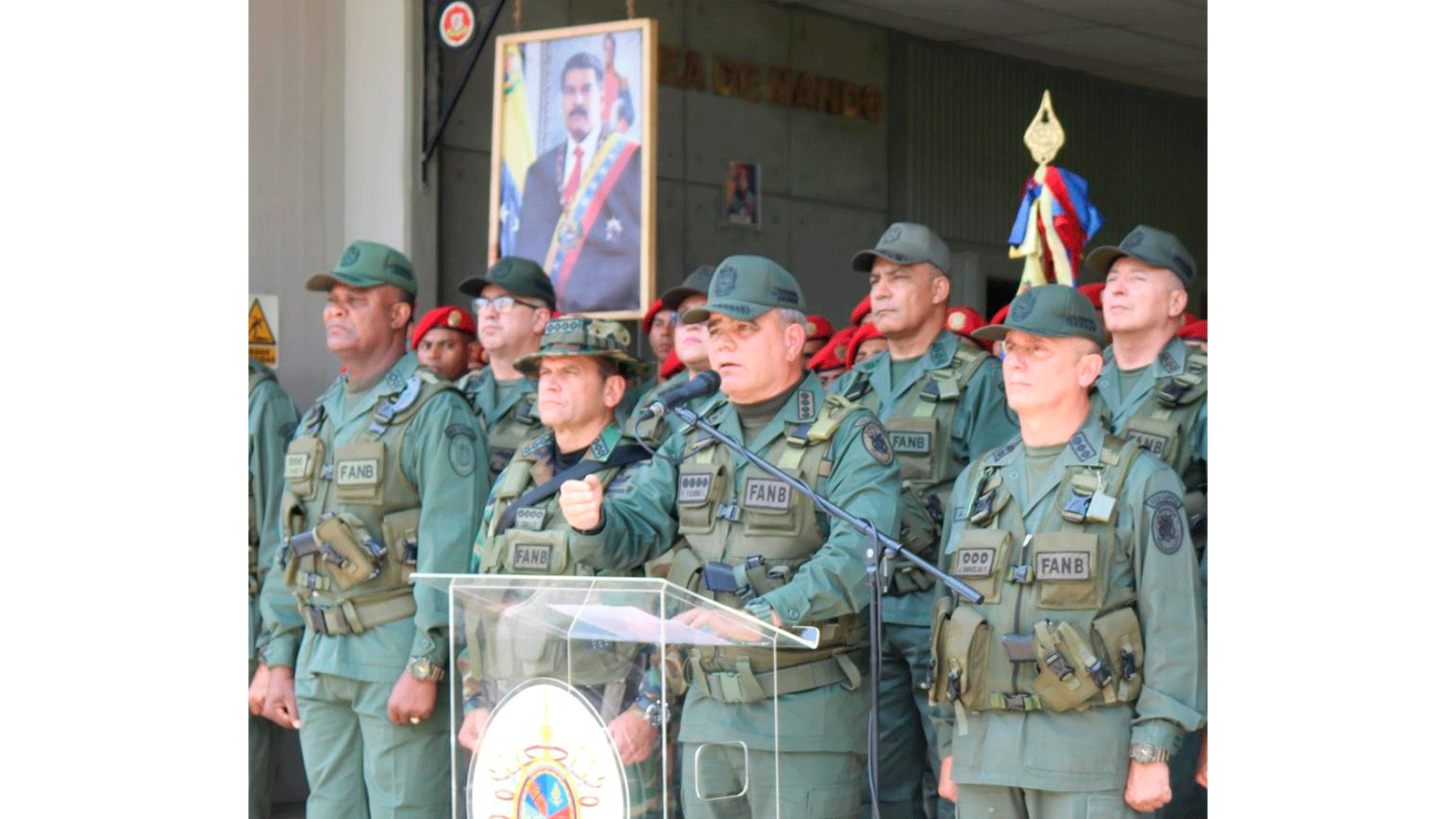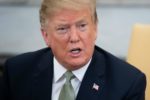Early morning of this Tuesday, interim president Juan Guaidó surprised the world by announcing through Twitter the release of opposition leader Leopoldo López, who had been arrested at his home since July 2017, after being sentenced to 13 years in prison. Its publication began a day that focused the attention of the world, one day before the marches called for May 1, date in which Guaidó announced the definitive start of Operation Freedom for Venezuela.
The speed with which the events occurred did not give time to clear the questions about the liberation operation by Leopoldo López. Quickly the questions turned to the plans of Juan Guaidó and the rest of the opposition, who hastened to celebrate this victory against the government of Nicolás Maduro. Then, the questions came for the reprisals that would take from the Miraflores Palace, where the president was silent and only pronounced through a tweet.
Meanwhile,Guaidó and López posed before the cameras and consolidated the return of one of the most notorious figures of the opposition. Leopoldo López, back on the streets, summoned the Venezuelans to demonstrate. Although many answered his call, several analysts assure that he did not achieve the desired call. To that possible disenchantment or weariness after months of mass marches was added fear of the violent actions of the military who still maintain their support for Nicolás Maduro.
Chain CNN released the shocking images of a military armored vehicle that hit a group of civilians protesting against the government. Once again, his publications earned him a censure in Venezuela: this time the government blocked his signal in English.
With the passing of the hours it became evident that on April 30, or #30Abr, the label that became a trend in social networks, did not go down in history as the day of Maduro’s fall. Even so, this date did mark the beginning of a new stage in the struggle for power in Venezuela and in the plans of the opposition to achieve the restoration of democracy.
Migration Project Venezuela sought the answer for three questions left by the day of April 30:
En el marco de nuestra constitución. Y por el cese definitivo de la usurpación. https://t.co/3RD2bnQhxt
— Juan Guaidó (@jguaido) April 30, 2019
1. Did the end of the military’s support for Nicolás Maduro?
Although Juan Guaidó reiterated his call to members of the armed forces in his first speech of the day and asked his support for the plan to promote a peaceful transition to democracy, the number of how many soldiers accepted his invitation during and after the release of Leopoldo López.
«Today, fear is overcome. Today as president in charge, legitimate commander-in-chief of the Armed Forces, I call all the soldiers and all the military family to accompany us in this feat. In the framework of the nonviolent struggle we have done at all times »
JUAN GUAIDÓ
Acting President of Venezuela
Talking about a rupture between the military and the Miraflores Palace is not an easy task, among other reasons because of the historical relationship that exists between the armed forces and the Venezuelan executive and the lack of information on defections to the government of Nicolás Maduro and accessions. to the interim mandate of Juan Guaidó. Although the events of this April 30 mark a turning point, it is still premature and risky to think that this day marked the beginning of a separation between Maduro and the barracks.
As Ronal Rodríguez, a researcher at the Observatory of Venezuela at the Universidad del Rosario, explained, the relationship of the executive branch with the Venezuelan armed forces is complex. To begin with, although its role is fundamental within the establishment, the Maduro government made a difference: “the influence of Cubans has been very strong as well as their participation in torture processes against dissident military or that have shown some level of rebellion or support for Guaidó”, he said.
Cuban influence has unleashed strong tensions, both within and outside military institutions, in their dialogue with other government agencies. For the expert, “it could not be said that the end of the military’s support for Nicolás Maduro has come to an end, but at this moment we are trying to identify who is with him and who is not“. In your opinion, This process will mark the opposition’s roadmap in the coming days.
In addition, he added that Venezuela has a record that in the past already showed the risk of coup d’etat orchestrated on the backing of the military. “Venezuela has been the only country in Latin America in which a coup d’état has been broken. You have to be very careful to know which of the forces are on the government side”.

During the early hours of the day, uncertainty about the reaction of the armed forces caused tension in Venezuela. | © TWITER @PRENSAFANB
2. What will be the role of Leopoldo López within the opposition after his release?
Leopoldo López is a leading leader for the Venezuelan opposition. His career has made him a banner of the opposition and one of the most well-known faces of the struggle for the restoration of democracy in Venezuela. Contrary to Juan Guaidó, a figure until recently unknown within the Venezuelan political spectrum, Lopez has in his career the experience of having exercised opposition to both Hugo Chávez and Nicolás Maduro.
For Gonzalo Oliveros, magistrate oftheVenezuelanSupreme Court of Justice, exiled in Colombia, the success of the liberation of Leopoldo López in the struggle of the opposition will depend on the social mobilization that supports it. “To the extent that the mobilization occurs, the military will make a decision. To a large extent what happens in Venezuela will depend on popular mobilization. This is an insurrection in rejection of the usurpation”.
For this reason, he considers that the role that López will play in the future of the struggle for the restoration of democracy will also depend on his capacity to summon citizens to the streets. “Its role will be decided by Venezuelans in their opportunity, when it is appropriate to go to an election in democracy and freedom. He is a very important leader in our country”.
For some analysts,the liberation of Leopoldo López oxygenates the opposition, especially at a time when the figure of Juan Guaidó began to weaken, after a string of demonstrations and marches in which participation began to diminish. “Leopoldo López generates a lot more empathy and has greater ability to call than Juan Guaidó”, added Ronal Rodríguez. In his opinion, the character of Lopez was demonstrated in the way in which the operation of his freedom took place, one day before the demonstration called by Guaidó, who announced it with the promise that it would be apotheosis. “López is a man who likes to accelerate moments and what we saw is part of that.”

The public appearance of Leopoldo López and Juan Guaidó gave a new respite to the Venezuelan opposition. | © TWITTER: @leopoldolopez
3. What will happen to the migration?
As often happens every time Venezuela lives a day that promises to be the beginning of the restoration of democracy, many voices are raised to establish deadlines and predict the fall of the government of Nicolás Maduro. Around the uncertain panorama that lives the neighboring country there is a reality that is maintained and that, even in an eventual scenario of transition, it will not have a close end: migration .
The first survey conducted on Venezuelans in Colombia, hired by the Observatory of the Migration Venezuela Project, revealed that 55 of the migrants hope to return to their country. However, those who plan to do so do not have a definite deadline to do so: 81 percent said they will return to Venezuela when the situation improves. His response drew attention to the need to provide conditions for Venezuelans who will make a living in Colombia while it is time to return or decide to stay permanently.
Although Nicolás Maduro’s departure from power will not immediately end migration from Venezuela, situations such as those experienced in the main Venezuelan cities this April 30 may become reasons for more people to make the decision to migrate. For that reason, Ronal Rodríguez considers that after the day of the liberation of Leopoldo López there will be a change: “there can even be a significant increase in migratory flows.The situation was already difficult due to the public service crisis that had been occurring in recent months, but this would be further accelerated by political instability. Every situation of instability generates fear in the population and this accelerates the exit process of the Venezuelans. “
A scenario of uncertainty in Venezuela could trigger a more disorderly migration, in an environment that is already marked by the increase in the arrival of undocumented migrants to regularize their stay in Colombia. In the border departments, the pendular traffic of those crossing to get food, access health services, study or work could increase, since Venezuelans can find a place that is safe while the situation in their country is resolved.
In Bogota, hundreds of Venezuelans gathered to celebrate the release of Leopoldo López and reject the government of Nicolás Maduro. | © GUILLERMO TORRES / WEEK
For Sergio Bueno, director of the Institute of Migratory Studies and Peace, “the conditions that led Venezuelans to cross the border and settle in Colombia have not changed . “Therefore, it does not consider that there are changes in the arrival of migrants to the country. Regardless of what happens in the short term at the political level, “poverty, lack of medicines and food is maintained, so that Venezuelans will continue to arrive not only in the country but also in other Latin American countries,” he concluded.
Given the possibility of a military exit or some kind of uprising against the government of Nicolás Maduro, Rodríguez said that“Some actors could come back. Above all, those who have more military-like pretensions, who even believe that their participation could be important, such as some soldiers who have arrived during the last two months”.



